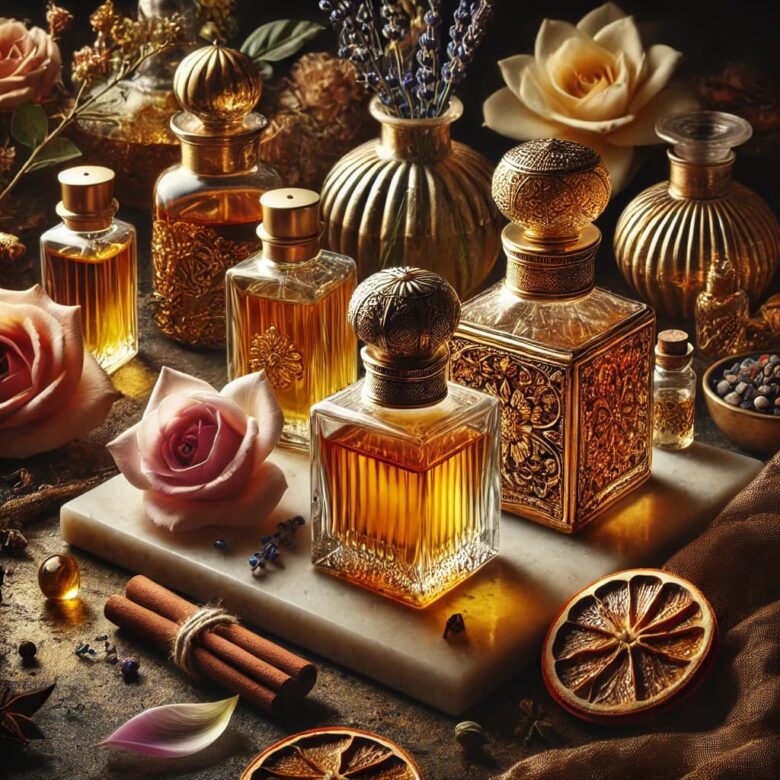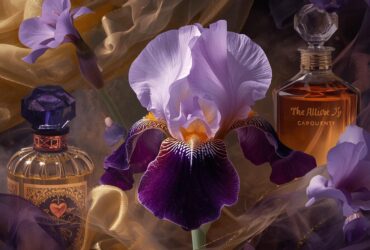Perfume oils are captivating blends that carry the essence of luxury, history, and personal expression. Unlike alcohol-based perfumes, these oils offer a purer, longer-lasting scent experience. From ancient traditions to modern applications, perfume oils have evolved into a thriving industry, catering to diverse tastes and preferences. In this article, we will delve deep into the enchanting world of perfume oils, exploring their origins, benefits, and how to choose the perfect fragrance.
The Rich History of Perfume Oils
Perfume oils have a deep-rooted history dating back thousands of years. Civilizations such as the Egyptians, Persians, and Indians used aromatic oils for religious ceremonies, personal adornment, and medicinal purposes. These oils were crafted using natural ingredients like flowers, herbs, and resins.
In ancient Egypt, essential oils like myrrh and frankincense were considered sacred and often reserved for royalty. Meanwhile, in India, sandalwood oil became integral to Ayurvedic practices and spiritual rituals. The art of perfumery eventually spread to the Middle East and Europe, where it flourished during the Renaissance period. Today, perfume oils continue to be celebrated for their cultural significance and sensory appeal.
What Sets Perfume Oils Apart?
1. Alcohol-Free Composition
One of the key distinctions of perfume oils is their alcohol-free formula. Unlike traditional perfumes, which often contain a high percentage of alcohol, perfume oils are pure concentrates. This makes them gentler on the skin and less likely to cause irritation, making them ideal for individuals with sensitive skin.
2. Longevity of Fragrance
Perfume oils are renowned for their longevity. Thanks to their concentrated nature, they cling to the skin longer, ensuring a subtle yet persistent scent throughout the day. A single drop can provide hours of captivating fragrance, making them a cost-effective alternative to sprays.
3. Intensity and Purity
The absence of alcohol in perfume oils ensures that the fragrance remains unadulterated. This results in a richer, more intense scent that stays true to its original composition. It’s no wonder that perfume connoisseurs often prefer oils for their depth and authenticity.
Types of Perfume Oils
Perfume oils come in a wide range of types, each catering to unique preferences. Some of the most popular categories include:
- Floral Oils: Derived from flowers like rose, jasmine, and lavender, these oils are romantic and feminine.
- Citrus Oils: Featuring refreshing notes of lemon, bergamot, and orange, these oils are ideal for a burst of energy.
- Woody Oils: With rich scents of sandalwood, cedarwood, and oud, these oils exude warmth and sophistication.
- Spicy Oils: Notes of cinnamon, clove, and pepper create bold and exotic fragrances.
- Earthy Oils: Ingredients like patchouli and vetiver offer grounding and calming effects.
Benefits of Using Perfume Oils
1. Versatility
Perfume oils can be worn on their own or layered with other scents to create a unique signature fragrance. Their versatility makes them suitable for all occasions, from casual outings to formal events.
2. Skin-Friendly
Unlike alcohol-based perfumes that can dry out the skin, perfume oils often have moisturizing properties. Many are infused with carrier oils like jojoba or sweet almond oil, which nourish and hydrate the skin.
3. Sustainable and Eco-Friendly
Perfume oils are often produced using natural ingredients, making them a sustainable choice. Many brands also prioritize eco-friendly practices, ensuring that their products are cruelty-free and environmentally conscious.
4. Customizable Experience
Many perfume oil enthusiasts enjoy blending different oils to create personalized fragrances. This creative process allows for endless possibilities, ensuring that your scent is truly one of a kind.
How to Choose the Perfect Perfume Oil
Choosing the right perfume oil requires understanding your preferences and the occasion. Here are some tips to help you make an informed decision:
- Understand Your Scent Profile: Determine whether you prefer floral, citrusy, woody, or spicy notes. Testing various oils can help you identify your favorite category.
- Consider the Season: Light and fresh scents work well for spring and summer, while warmer, heavier fragrances are ideal for fall and winter.
- Test Before Buying: Always test the perfume oil on your skin to see how it interacts with your body chemistry. This ensures that the scent complements you perfectly.
- Research the Brand: Opt for reputable brands known for using high-quality, natural ingredients. This guarantees a superior fragrance experience.
Tips for Applying Perfume Oils
The application of perfume oils can enhance their longevity and impact. Follow these simple steps for the best results:
- Apply to Pulse Points: Dab a small amount of oil onto your wrists, neck, behind the ears, and inner elbows. These areas generate heat, intensifying the fragrance.
- Use Sparingly: A little goes a long way with perfume oils. Start with a small amount and build up if necessary.
- Avoid Rubbing: Gently pat the oil onto your skin instead of rubbing, as this can break down the fragrance molecules.
- Layer Strategically: If you’re layering with other scents, apply the oil first as a base note.
Caring for Your Perfume Oils
Proper storage ensures that your perfume oils maintain their quality and fragrance over time. Keep these tips in mind:
- Store your oils in a cool, dark place away from direct sunlight.
- Use airtight containers to prevent oxidation.
- Avoid exposing the oils to extreme temperatures, as this can alter their composition.
Perfume oils are a timeless and versatile alternative to traditional alcohol-based fragrances. Their purity, longevity, and customizable nature make them a favorite among fragrance enthusiasts. Whether you’re drawn to the allure of floral notes or the depth of woody aromas, there’s a perfume oil for every preference and occasion.
By exploring this fascinating world, you can discover scents that resonate with your personality and style, elevating your fragrance experience to new heights.








Leave a Reply